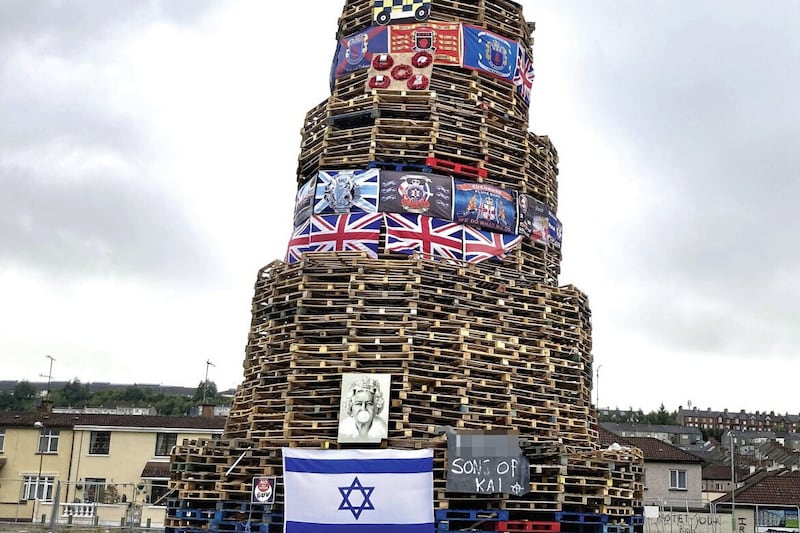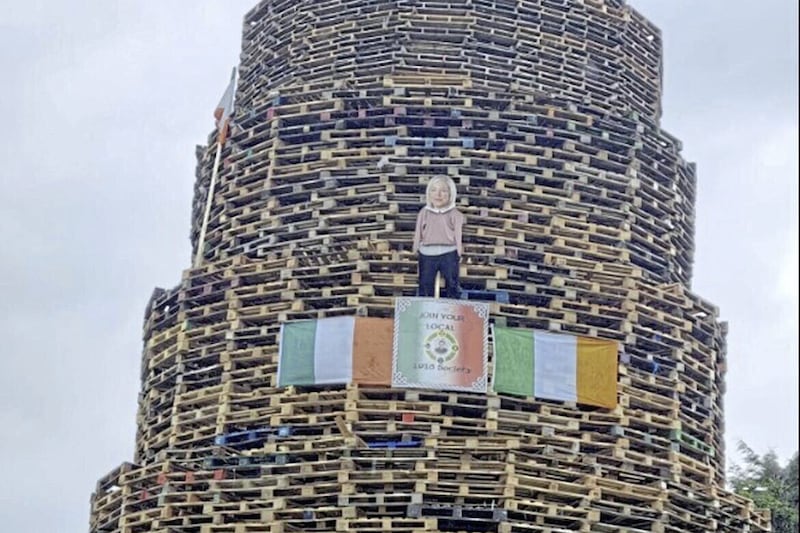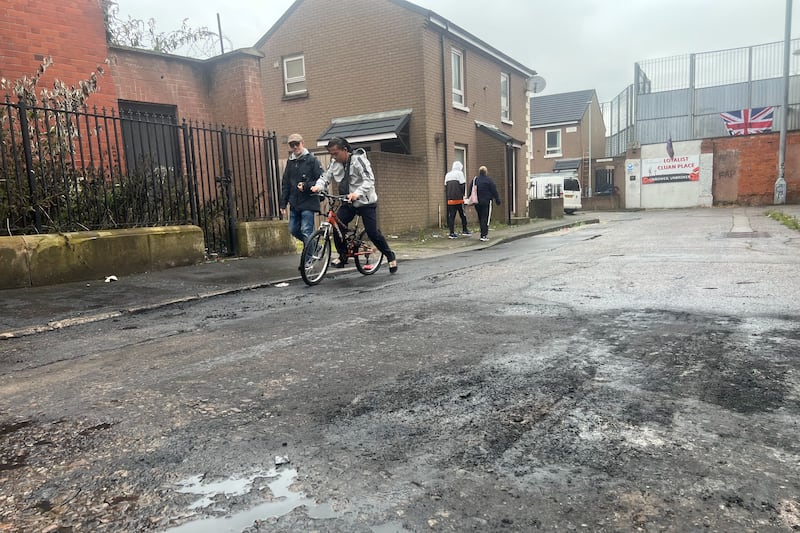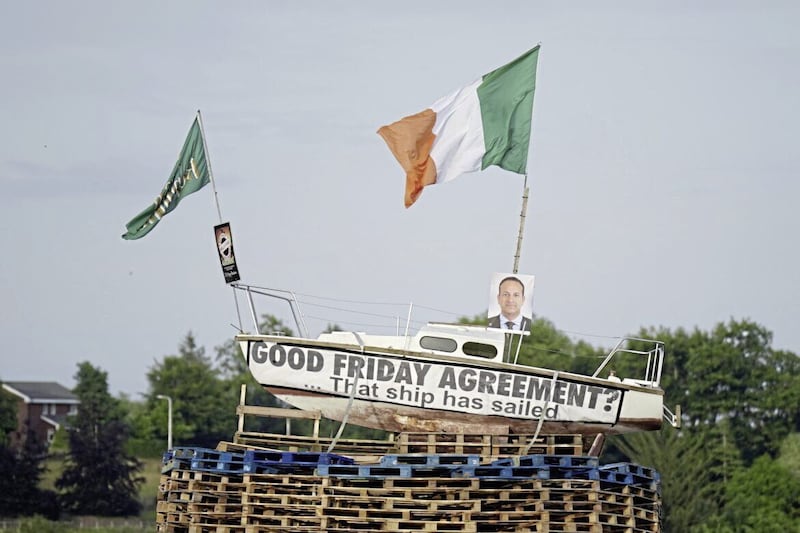Sinn Féin has said it is time to end “sickening displays of sectarian hate” on bonfires, no matter what side of the community they come from.
MLA Gerry Kelly made the comments as the familiar sight of images of political leaders on bonfires has been repeated in multiple locations - including an effigy of Sinn Féin’s vice president Michelle O’Neill as well as SDLP and Alliance representatives.
The Irish News also asked if the party supported ending anti-internment bonfires in August which, although much smaller in number, had a similar reputation for featuring pictures of political leaders and other sectarian images.
“The sickening displays of sectarian hate witnessed on bonfires over recent days are disgraceful and have no place in our society,” Mr Kelly said.
“The burning of posters, flags and effigies are not legitimate expressions of culture. These are sectarian hate crimes.
“We have reported a number of bonfires right across the north to the PSNI and they should now be investigated and treated as hate crimes.”
Read more
Michelle O'Neill effigy on loyalist bonfire being treated as hate crime
What are eleventh night bonfires in Northern Ireland?

He continued: “Sinn Féin is also opposed to all bonfires that pose a threat to life, property and the environment. They should be subject to proper legal regulation and enforcement.
“There is an onus on all political and community leaders to stand up against these displays of sectarian hatred and make it clear there is no place for them in this society.”

The effigy of Ms O’Neill appeared on a bonfire in Dungannon’s Eastvale Avenue area, while Sinn Féin councillor Taylor McGrann called for unionist leaders to speak out against such displays after his name appeared on a bonfire in the Rathcoole area of north Belfast.
Police have confirmed that they are treating both incidents as a sectarian hate crime and had liaised with community representatives about having material removed.

Elsewhere, the Alliance councillor Michael Long shared pictures of his image on the controversial bonfire outside Lisnasharragh Leisure Centre in east Belfast.
“Have been sent this. A celebration of culture, apparently,” he said.
The bonfire had already attracted criticism after images taken by the Irish News of a bonfire builder’s hut at the site displayed sectarian and nazi imagery.
Commenting on the picture, SDLP councillor Séamas de Faoite said: “Solidarity Michael. This has to be the last year this bonfire gets away with causing havoc at this site. Residents and leisure centre owners deserve better.”
Have been sent this. A celebration of culture, apparently. pic.twitter.com/8QYjsKyvly
— Michael Long (@CllrMichaelLong) July 11, 2023
Speaking ahead of the Eleventh night bonfires, the DUP leader Sir Jeffrey Donaldson had called the burning of flags or election posters “self-inflicted wounds” for unionists.
Sir Jeffrey said the burning of flags or election posts are “self-inflicted wounds” for unionists.
“For those of us who do cherish the legacy of the Glorious Revolution then the best way to show that to others is through peaceful and positive celebrations,” he said.
“Those don’t include the burning of flags or election posters on a bonfire, but thankfully in the vast majority of cases that does not happen.
“Unfortunately, it will be a minority of cases where offence is caused that will dominate the headlines.
“As unionists we need to recognise that such incidents are self-inflicted wounds.”








